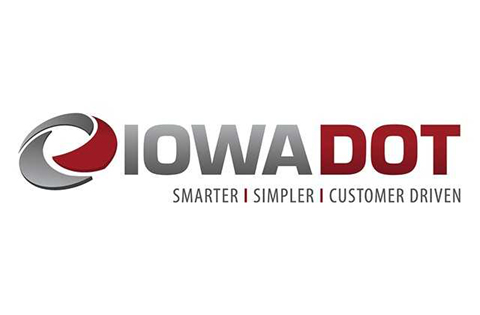By Dar Danielson (Radio Iowa)
The State Patrol says there’s been an increase in distracted driving on the open roadways — and the DOT says it’s become an issue at train crossings as well. Kris Klop oversees the installation of warning devices at rail crossings for the DOT and says accidents started changing around the time of the COVID pandemic.
“For some reason, they’re now running into the side of trains, rather through the gates into the side of the trains, rather than trying to go around the gates and then getting hit by the trains,” he says. “I definitely have a suspicion that involves distracted driving.” Klop says racing to beat a train through a crossing is a conscious decision, but it’s hard to see how someone can just drive through gates into a train.
“Between the train through the middle of the roadway and the flashing lights and the gates, I don’t know how people can miss that and run into the train,” Klop says. Klop says there’s a yearly program to assess rail crossings and the need for warning devices or upgrades — but that doesn’t mean anything if the driver isn’t paying attention.
“Nationwide, 47 percent of the accidents are at crossings that have lights and gates. So putting lights and gates at a railroad crossing does not completely eliminate the chance of there being an accident there,” he says. Klop says the number of accidents at crossings in Iowa has dropped from 300 a year in 1987 down to about 15 a year more recently.
“If everything is working properly and motorists are heeding the warning devices and not paying attention to their phone, they should be safe. If motorists are heading what’s there to warn them of the railroad crossing, they should heed that, and if everything is working properly, then they will be safe,” Klop says. Klop says Iowa has just under five-thousand railroad crossings with 2,264 that are passive and have no signals. There are 1,128 crossings with gates, 702 with just flashing lights, and 742 where the railroad track goes over or under a bridge. He says any crossing where a car has to drive over the track has some sort of advanced warning for drivers.
“At a bare minimum, it’s federally required that they have a crossbuck sign on either side with a yield sign attached to it. Or in some cases, if an engineering study determined it was necessary, they can put a stop sign there in lieu of the yield sign,” Klop says. Of course, you can have a higher level of safety devices, you have flashing lights and gates or cantilevers over the roadway, with flashing lights on them. Klop says they have 15 to 18 rail signal projects during a typical year, and one to three cases each year where they close a crossing.




